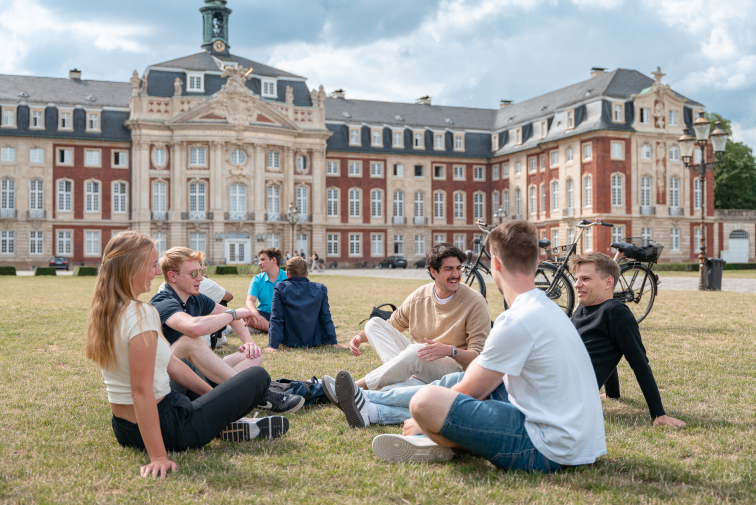
In our new format ‘5 questions for...’ students give exciting insights into their studies and everyday life at university. Don't miss any new stories and follow us on Instagram to stay up to date!
-
5 questions for Simon
1) How did you come to study Information Systems?
I discovered my passion for computer science, i.e. programming, during an internship. At school, we already had a subject called business studies or something along those lines, so it made sense to combine the two in my degree programme.
2) Why did you decide to study in Münster?
I wanted to get away from home a bit and Münster is also quite a beautiful city.
3) What is the content of your degree programme?
You learn a lot about processes and models and business informatics tries to combine computer science content and business administration content and is a subject.
4) How do you like Münster as a student city?
I think Münster is quite beautiful, and it also offers many opportunities to meet friends, for example through university sports or all the green spaces, and socialising is very much to the fore here, which is nice.
5) How do you envisage your professional future after studying Information Systems?
I have already gained an insight into IT security through a specialisation module, and I find the field very interesting. There is also the opportunity to do programming here, which I also find exciting. So professionally, I will go into these areas.
You can find the full interview on our Instagram channel: Reel - 5 questions for Simon
-
5 questions for Lars
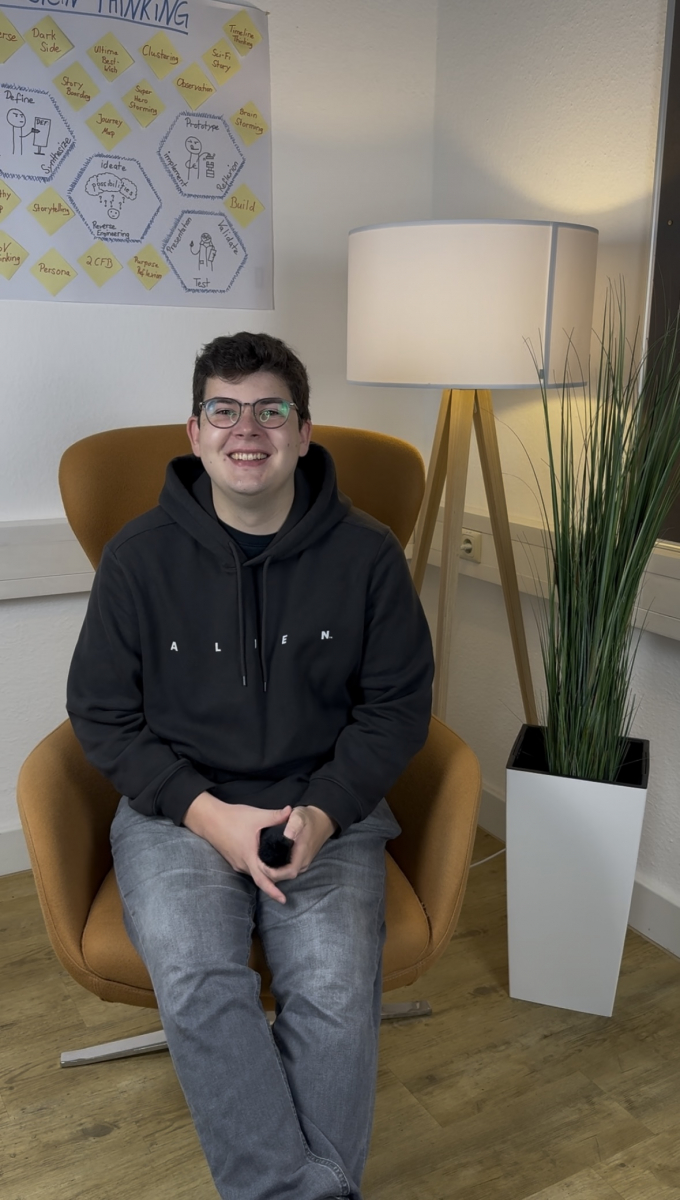 1) Why did you decide to study Information Systems?
1) Why did you decide to study Information Systems?
When I was in school, I found the subjects of economics and computer science interesting. I also went to a career fair and looked into the subject, and that just confirmed that this was the area I wanted to do.
2) Why did you decide to study in Münster?
The answer is actually quite simple. At the time when I was looking around to see where I could apply, one of my best friends was already living in Münster, which is how I came across Münster. And then I did some more research and finally decided in favour on Münster.
3) What do you like most about your degree programme?
During my studies, I found the project seminar, which I completed last semester, particularly interesting and exciting. Simply because it gives you the chance to put all the theoretical principles into practice.
4) What are your three favourite places in Münster?
I think the Aasee is really great, simply because the surroundings are very beautiful. Then there is the Leonardo Campus, because I am there a lot for my studies, and then there is the city centre, because you can do all sorts of things there, whether it is bars, cafés or simply shopping.
5) How do you envisage your professional future after studying information systems?
I find digitalisation particularly exciting. Whether in the public sector or private companies – that is where I want to go with my studies afterwards.
You can find the full interview on our Instagram channel: Reel - 5 questions for Lars
Below you can find more testimonials of some of our Bachelor students:
-
Paul
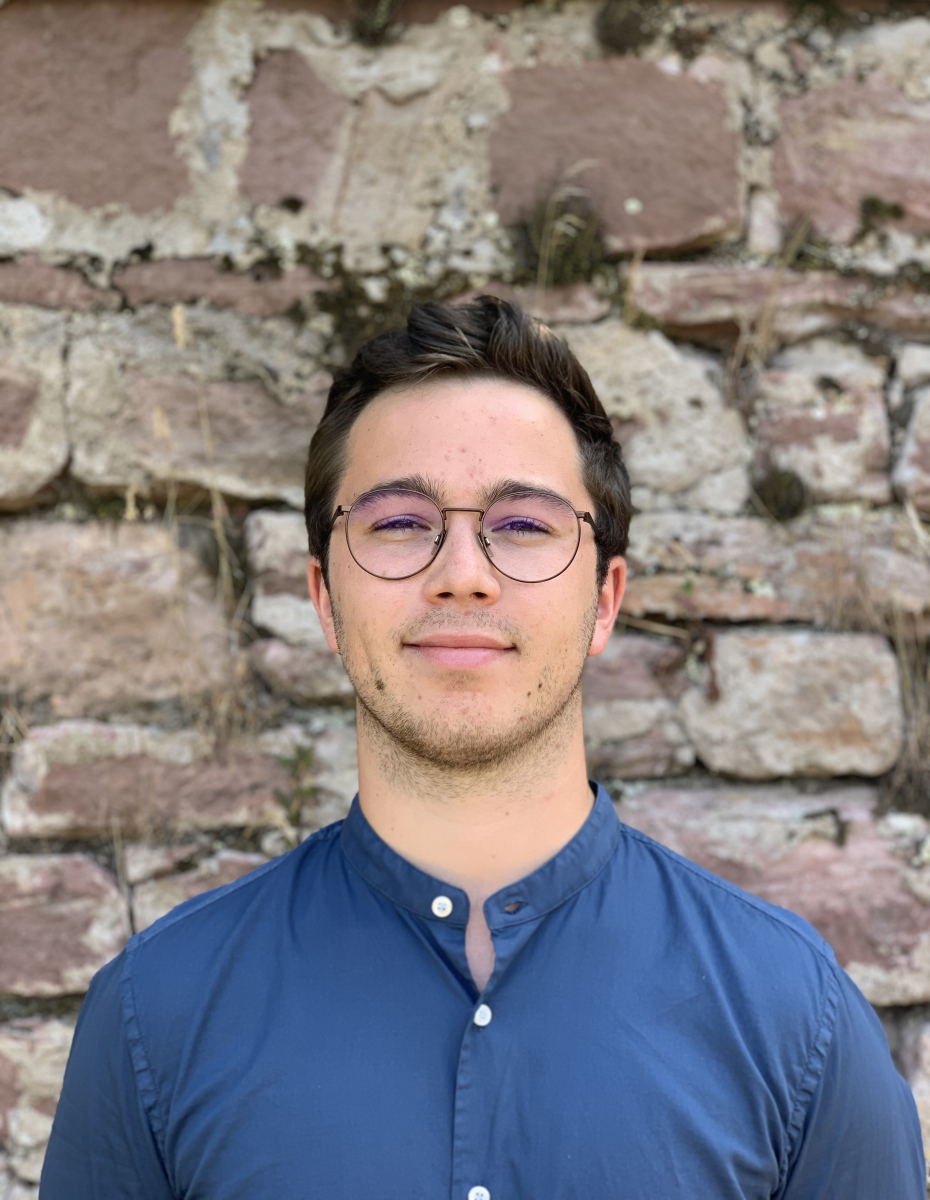 How did you come to study Information Systems?
How did you come to study Information Systems?
I took an economics club during my A-levels in which we were introduced to all aspects of business, society and so on. As part of this club, we visited the nearest University of Applied Sciences. They told us something about Information Systems and that stuck with me.
Why did you choose the University of Münster?
I come from near Düsseldorf and didn't want to move too far away. Münster was a great fit. At the same time, the testimonials from friends and acquaintances were also very convincing. When I was at school, I had also visited friends who were already studying in Münster at the time. They showed me around the city one afternoon and I really liked it.
What do you particularly like about our Department?
The rather small distance between students, PhDs, some professors and other members of staff is very cool. This means that everyone is quite approachable, you can have personal conversations and have very close contact with each other. Depending on how much contact you want, of course. If you're actively interested, it's very easy to integrate into the internals.
What did you like best about the Bachelor's degree programme?
I liked the structure. It's quite generic, of course, because it's also transferable to the Master's programme. Thanks to the specialisation modules and seminars, you can already assess in which direction you want to go during your Bachelor's degree. And from my current perspective as a Master's student, I can say that you first work through the basics in the Bachelor's degree, as IS is an interdisciplinary degree programme with a super wide range of areas. In the Bachelor's programme, you have a specific timetable for the first few semesters with your foundation modules. And within this fairly rigid structure, I really liked the fact that, by choosing specialisation modules and the project seminar, you can specialise in your own direction and according to your interests, if you choose the right one.
What does the Information Systems degree programme cover?
The subject area of the degree programme is broad and you get an initial overview of all areas. You can then decide what you want to do or which direction you are particularly interested in. Personally, I'm more interested in the area of process management. This is one of the core areas of IS and you can delve deep into it if you want to. The degree programme and the Department provide a platform which offers everything. You can get a taste of everything and then choose which area you want to delve into more deeply and which topics you want to spend more time on.
Who is the degree programme particularly suitable for?
I don't think it can or should be categorised according to certain characteristics, character types or types of people. Simply because the degree programme is super interdisciplinary. You shouldn't be deterred by the fact that the title of the degree programme includes 'Computer Science'. In general, it's important to be curious about the various topics and to be prepared to familiarise yourself with them. A certain amount of discipline is an advantage, as well as a general understanding of logic. However, if you don't meet all these aspects, it doesn't mean that you shouldn't study IS. That's why I try to recommend the degree programme to different people, because you're not in the pure computer scientist bubble. As part of the IS degree programme, you deal with topics that can be applied in any field and this also requires different perspectives from the students.
What was your highlight during your studies?
From an educational perspective, it was the project seminar. It was on the topic of "Digital process design in hospitals". We worked on developing reference models for processes in hospitals. We were quite a large group of ten students. The group work went very well because everyone worked together and we had good project management. We set up the whole project by ourselves, of course with the guidance of our supervisors. And we were able to further develop ourselves within these guidelines.
What was particularly cool was that it all worked well and the work was fun. In the end, our results were very well received by our practice partner, which meant that they have now adopted our reference processes as part of their standard practice. The project was a complete success and the grade was accordingly very good. This showed that a cool project can be a lot of fun by correctly applying project and process management methods, as well as by the cooperation and commitment of everyone in the team.How do you like Münster as a student city?
The city is great and has everything you need. According to statistics, Münster is one of the big cities, but you often bump into people you know because the size of the city is manageable. If you live in and around the city centre ring road, you can reach all routes within 15 minutes by bike. There is also a lot offered to young people: as one third of the city is made up of students, the offers are geared towards them. There are numerous opportunities to go out or take part in other activities. There are lots of concerts and many events organised by students. Münster is a great city.
And how else can you spend your free time as a student?
In addition your studies, you can get involved in various student initiatives. There are some in different areas, such as student business consultancies or initiatives that organise career events. There is also the student council, which represents the concerns of students. I've been a member since my second bachelor's semester. In addition to student representation, we also offer services such as the exam archive and organise events.
What do you find particularly interesting about your work in the student council?
I have been active in the student council of our department for a long time as an IS officer. I represented the interests of the students to the department. For example, we also organised events where students could get to know each other. We also have a discussion with the professors every semester. We give them feedback from the students and try to find solutions together. At the same time, we are in dialogue with the Deanship and the Rectorate and try to represent our interests through communication and discussions.
-
Jonas
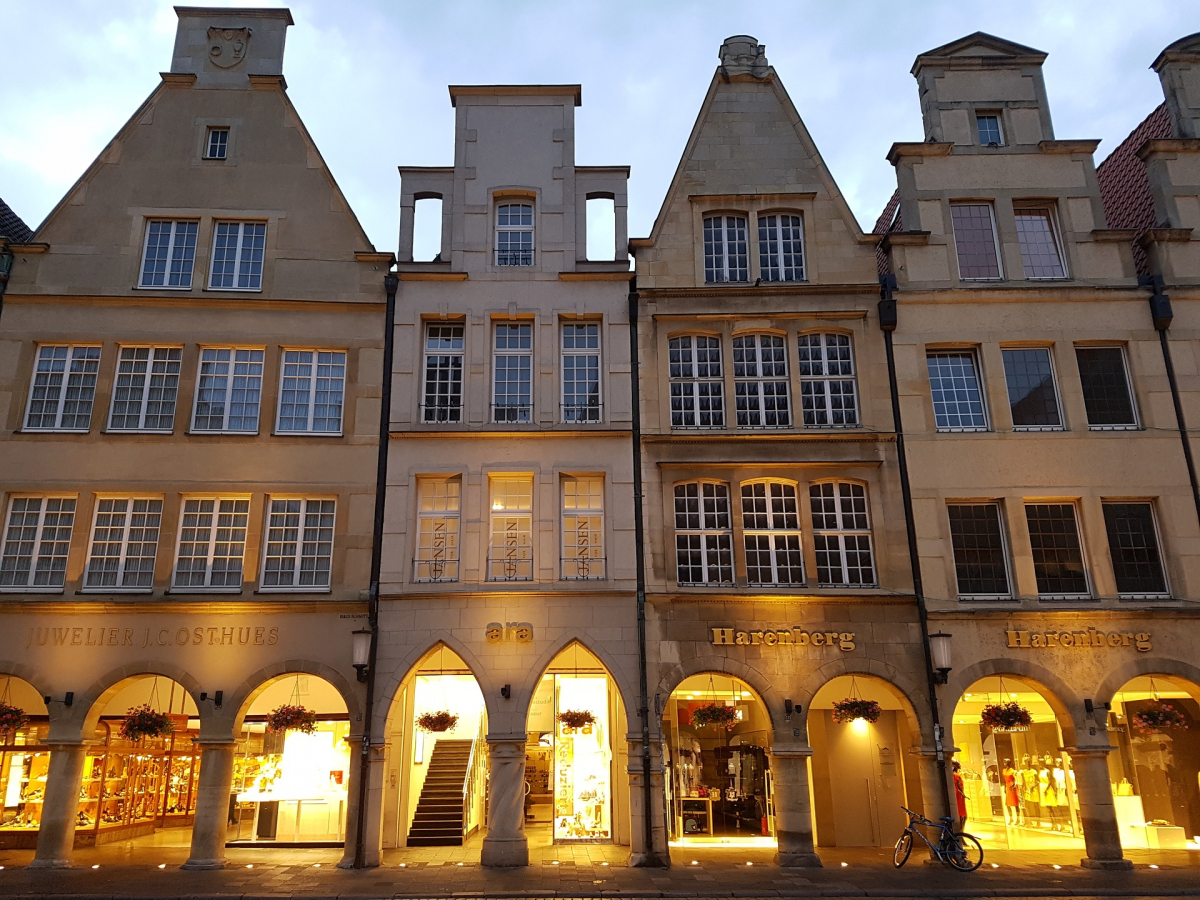 How was your start at university?
How was your start at university?Because of Corona, my start was different than usual, but I think it was handled very well. Our orientation week took place online via Zoom, so we had the opportunity to get to know other first-year students. Nevertheless, I found it rather difficult to really get into the studies.
What I can definitely recommend is the preliminary maths course that I took voluntarily in September. By doing that I had the opportunity to get to know some people, for example a tutor from the Master's program. The entire week took place online, but at the end of the week, a few participants met at the Schloss in Münster and at the Aasee which was really cool. In general, the course was very helpful in taking the first steps into student life.
When did you decide to study information systems?
It was always clear to me that I wanted to study information systems. Maths was very easy for me at school and I also liked computer science. But since I was also interested in business studies, the combination of both seemed to fit me very well.
Why did you decide to study at the University Münster?
I have many friends from school who also study at the University Münster. Some of them even live in the same student housing as me. In general, business studies and information systems at the University Münster have a very good reputation which of course was also an argument for me to study here.
What has been your favourite course so far?
My favourite course is definitely computer science, it's the one I connect to the most. One of the things I like about the course is that we have a lot of online lectures via Zoom instead of online videos, which is rather common in many of my other courses.

Do you have any recommendations for future students?
I can definitely recommend attending all the lectures right from the start and not putting anything off. The study program has a heavy workload, but if you can motivate yourself to study for it, you can definitely manage to pass. Maths is definitely the most demanding subject at the moment and it’s important to set aside some time to do the required tasks.
I can also recommend applying for a place in student housing early on. I was very lucky to be accepted quite quickly, which definitely made the start of my studies easier. Because of my living situation, I had the chance to get to know other students despite Corona.
-
Torben
 Why did you decide to study information systems at the University Münster after graduating from high school?
Why did you decide to study information systems at the University Münster after graduating from high school?I decided that I wanted to study information systems because I like the diversity of the program. As I knew what I wanted to study I only had to decide where to apply. I thought Münster was a cool city and the department has a very good reputation in the field, which is why I ultimately chose to study here.
Do I need any specific knowledge prior to starting the degree programme?
You don't need any specific knowledge, but it definitely helps to be able to think logically and to have programming experience, e.g. in Java, can be useful too.
Did you do an internship during your time at university?
I was supposed to do a four-month internship at a consulting firm specializing in the field of web development in Brazil this year. However, I had to postpone it to next year because of Corona. The organization AIESEC arranged the internship for me, which worked out very well so I can definitely recommend it.
Do you already have plans for after finishing your study?
I am really interested in process and data management which is why I would like to specialize in this field. However, I don't know yet whether I want to do a Master's degree. Generally, I could imagine working as a consultant, for example.
What is life like in Münster?
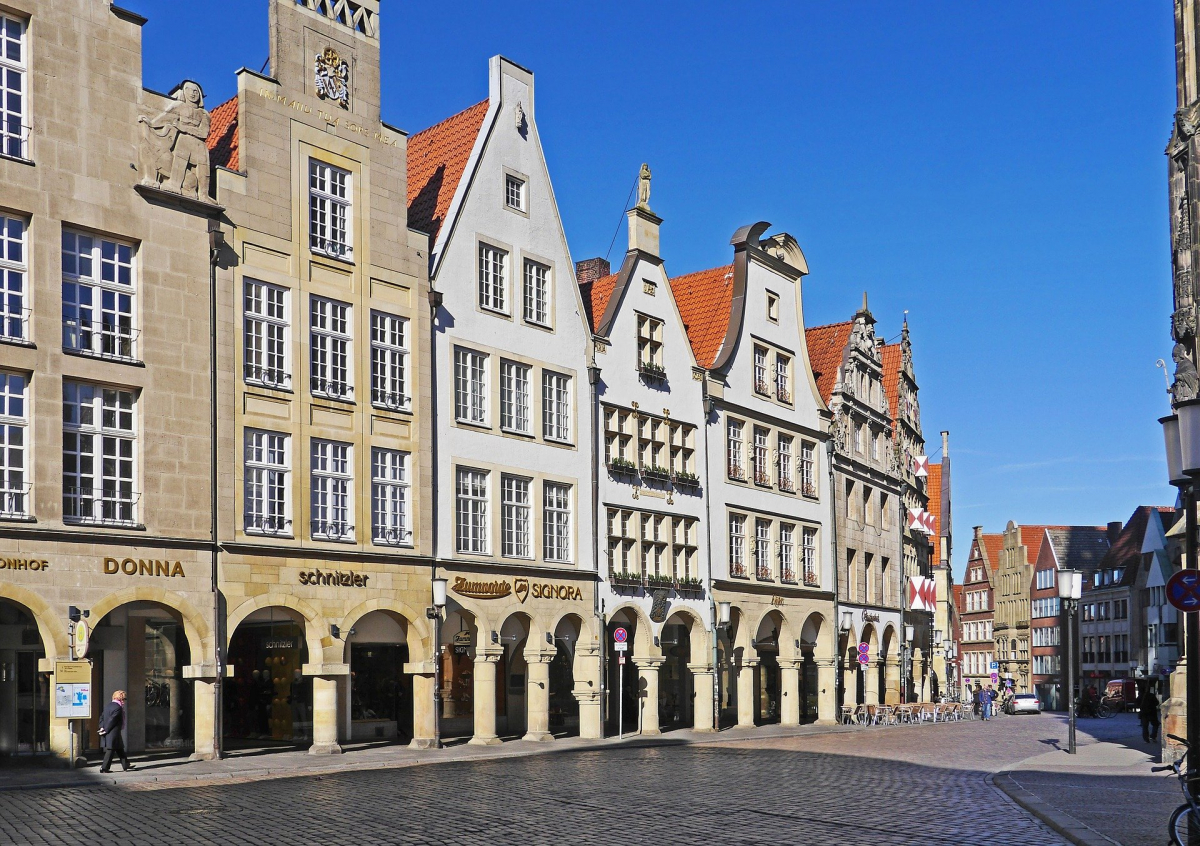
What I like about Münster is that you can always find something to do in the city, especially if you have a good friend group. Outside of my studies, for example, I played football and was also a football coach for a year.
Do you have any tips for future students?
Especially at the beginning of your studies, you should make sure you always take notes and study enough. The workload is high and you need a bit of ambition to succeed in your studies.
What has been one of your study highlights so far?
I was an orientation week mentor this year. The circumstances were a bit difficult because we had to organize everything online, but it was still a lot of fun. For example, we organized games that the groups could play together online or had Zoom parties in the evening.


